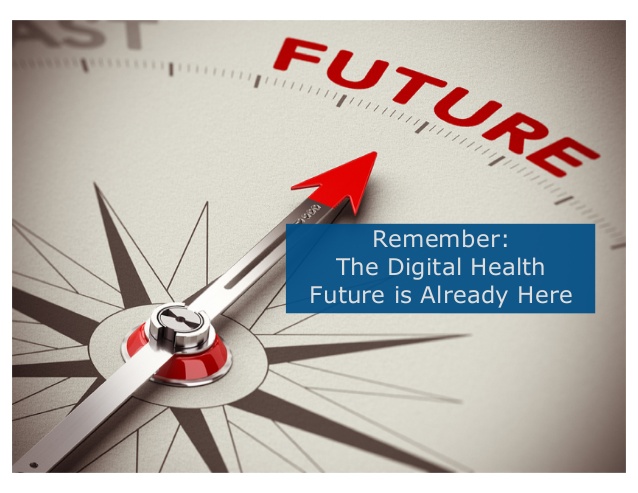
Fard Johnmar, founder of Enspektos describes 6 major gifts digital health has granted doctors, patients, caregivers and others during 2014.
There’s a lot of skepticism about the potential of digital health tools and technologies to transform health and medicine. A lot of it is warranted. We’re still waiting for robust studies that help to prove that tools such as mobile applications and wearables can actually improve health and change behavior. The ones we have today are rather disappointing.

Patients are still faxing information to doctors, making appointments via phone and living an analog rather than digital health and medical world. Excitement is high about the level of investment in digital health even though some highly-touted firms have underperformed post-IPO. And, when it comes to how long it will be before digital technologies profoundly change health, some experts suggest we’ll have to wait 10-15 years, when digital natives are older and sicker.
But, there are many reasons why it would be premature to give up on digital health. Looking back on 2014, it’s clear that digital technologies such as genomics, Big Data and bionics are beginning to transform care — and lives. Shouldn’t we take time to celebrate these victories, these digital health gifts?
In celebration of the holiday season, here are six major gifts digital health has granted doctors, patients, caregivers and others during 2014. Taken together, these gifts illustrate how health’s digital future is here now. Luckily, we don’t have to wait years or decades to reap some of the benefits of the digital health revolution.
1. The Gift of Time
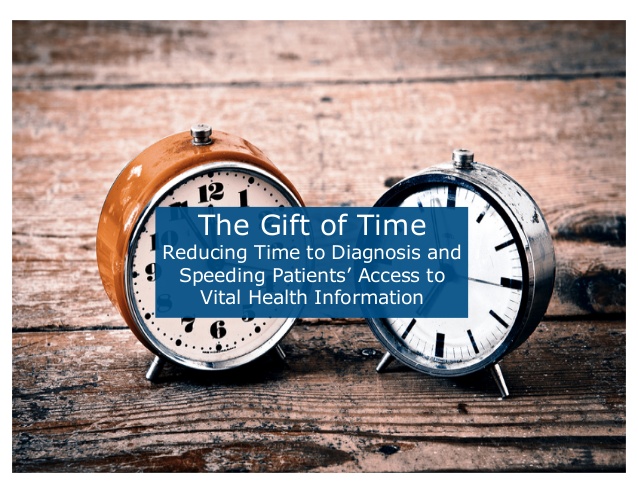
Some of the most time-consuming aspects of healthcare have to do with getting diagnosed for a condition and finding relevant and accurate information about health, medicine and wellness. Big Data, genomics and social media are helping to reduce time to diagnosis and provide patients and caregivers with the information they need to make sound decisions and manage their care. Specifically:
– Large data sets are being collected and analyzed to provide important information about the biology of disease, medical research and more — this information is being used to accelerate diagnoses.
– Researchers have made advances in using DNA and other genetic information to quickly identify viruses and bacteria that contribute to disease — this work is helping to identify common and rare pathogens and develop treatments.
– Social media contains a wealth of information about medical research, newly approved drugs and more that can be mined to provide personalized and relevant health information to patients automatically.
2. The Gift of Knowledge
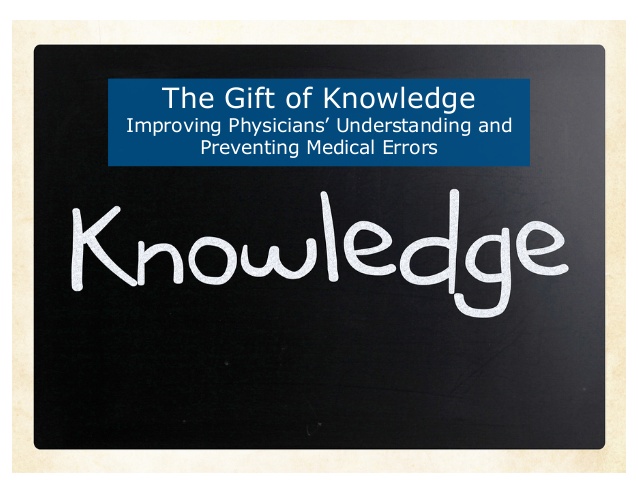
Physicians do a great job of using their vast experience to diagnose and treat disease. But, what if digital technologies could help them make better-informed clinical decisions and reduce medical errors? Here are a few digital health tools that are helping to boost clinicians’ knowledge:
– Big Data is being collected and analyzed about complex conditions such as cancer to aid clinical decision support and improve treatment.
– Genomic research has revealed that certain drugs perform differently in patients from varying ethnic and racial backgrounds. Genetic data about patients is being included in electronic medical records and used by physicians to help guide medication selection and prevent drug-drug interactions.
– Aided by Big Data and complex algorithms, computers are developing the capacity to learn and react based on experience, which is helping to usher in the era of artificial intelligence to healthcare.
3. The Gift of Connection
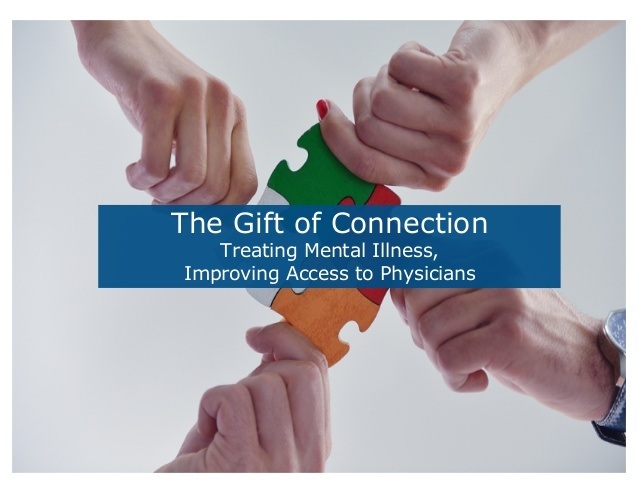
Connection is at the center of health and medical care, whether people are simply looking to see a doctor in a timely fashion or seeking help for a mental illness such as depression. Digital health technologies have proven especially useful in terms of forging connections between patients and clinicians and helping people receive help when it is needed most. For example:
– Telemedicine is taking center stage in Europe and the United States as secure and private video teleconferencing is allowing for efficient digital communication between patients and medical professionals. Telemedicine is helping to reduce wait times and save lives, in areas such as stroke, in the United Kingdom.
– SMS, push notifications and other mobile technologies are enabling patients to communicate with clinicians and therapists about sensitive mental health issues in real time and is even helping to prevent suicide.
4. The Gift of Movement

We’re truly living in an age of medical miracles. Digital innovations embedded into hardware such as wearables and prosthetics are allowing amputees to touch their loved ones again and the paralyzed to walk. Here are a few of the digital health technologies helping to make this happen.
– Big data sets are being collected from individuals and groups to help provide baseline information on physical performance.This information is being used to calibrate and optimize major body hardware like exoskeletons.
– Sensors embedded into devices can provide a feedback loop of data that helps computer-powered machines understand where they are in physical space and more. Sensors and microsurgery are helping people who have lost their arms grasp objects and feel the skin of loved ones.
5. The Gift of Hope
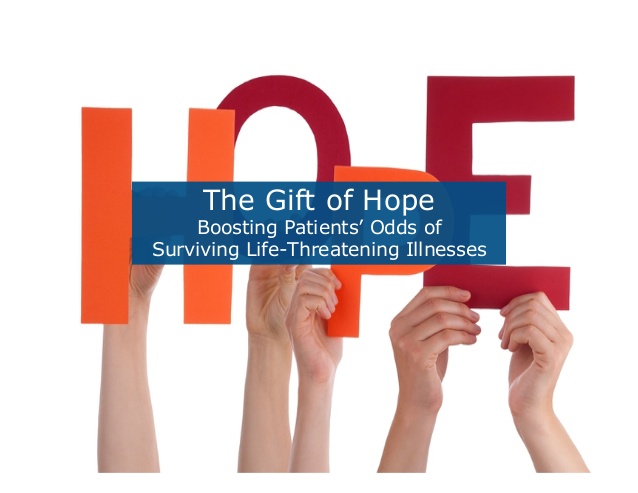
Another miracle of medicine is the fact that it is helping to give people hope — especially for illnesses that once would have spelled certain death. Some of the digital health technologies that have granted the gift of hope include:
– Big data sets are being collected and analyzed to help identify the genetic causes of diseases like cancer. Important cancer data is now being stored in the cloud to improve access to this information, which may speed the development of new and powerful therapies.
– Genetic research has revealed that some cancer cells have unique genetic mutations that make them more, or less, responsive to certain medications. This has led to new therapies that are helping to give hope to people with severe cases of deadly diseases like lung cancer.
6. The Gift of Life
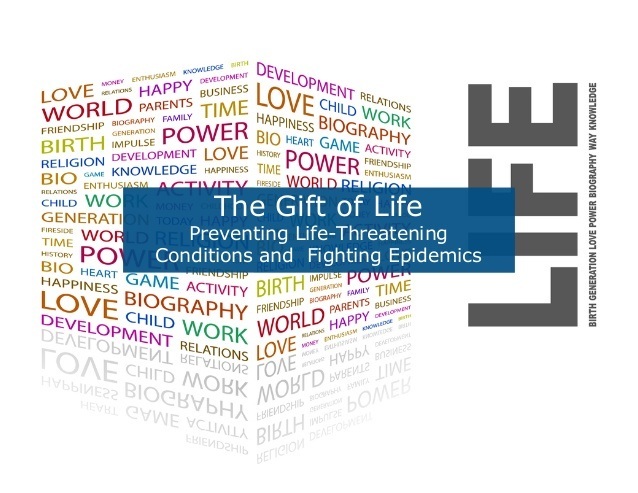
Can digital health technologies actually save lives? Why, yes. With the rise of the Ebola virus we’ve seen a range of digital technologies being used to help track the disease and prevent its spread. Other tools are being used to anticipate when people are at risk of a life-threatening events such as heart attacks and strokes and intervene before people become seriously ill. Some of the digital health tools helping to make this happen include:
– Sensors can be used to detect changes in people’s bodies that may indicate they will soon have a heart attack, stroke, depression or another medical condition.
– Large data sets containing important diagnostic information can be analyzed and mined for certain patterns suggesting that people may soon have a life- threatening medical event.
– Mobile devices (combined with sensor technologies) can be used to monitor patients remotely, enable communication with medical professionals and more.
I hope you found this overview of the many ways digital health technologies have transformed health and medicine in 2014 informative, inspirational and exciting. If you’d like to read more on this topic, please take a look at a slide presentation I put together,”12 Gifts of Digital Health: 2014.” It dives deeper into the digital health trends, technologies and gifts I outlined above. Click here to view it.
